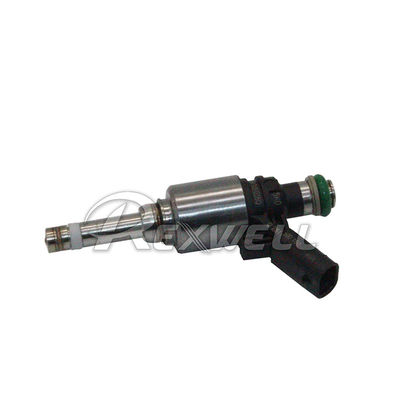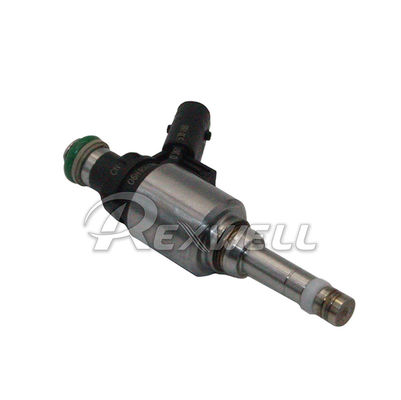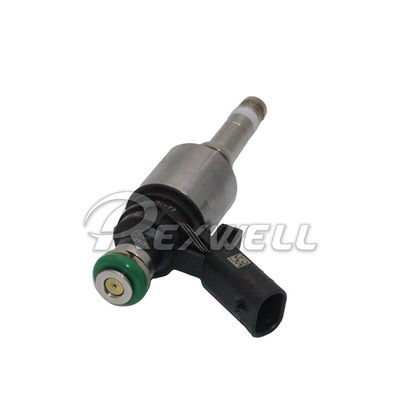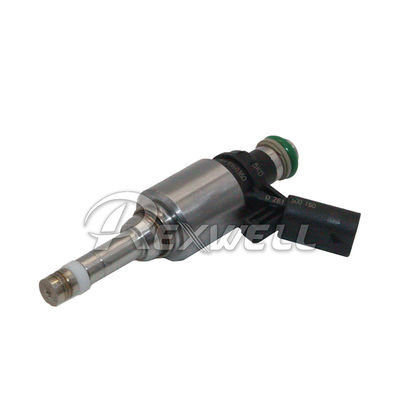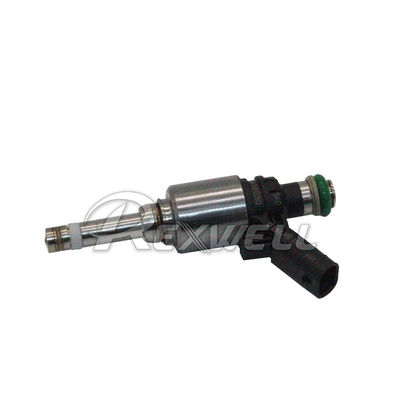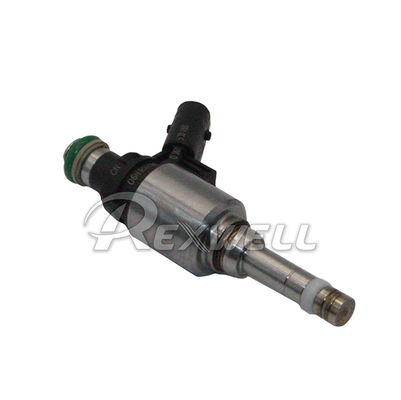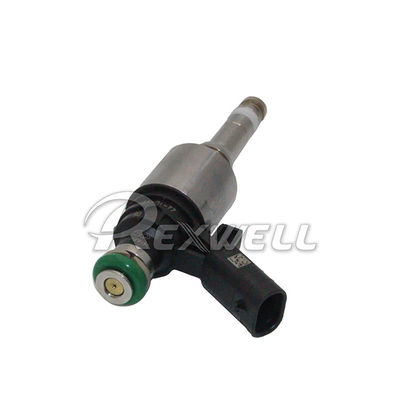-
Toyota Auto Parts
-
Nissan Auto Parts
-
Hyundai Auto Parts
-
Spark Plugs And Ignition Coil
-
Car Shock Absorbers
-
Auto Suspension Parts
-
Auto Transmission Parts
-
Auto Brake Parts
-
Auto Engine Parts
-
Car Sensor Parts
-
Timing Chain Kit
-
Car Water Pump
-
Auto Steering Parts
-
Belt Tensioner And Pulley
-
Car Filters
-
Other Auto Parts
06H906036Q 06H906036F 06H906036H Bosch Fuel Injector For VW Jetta Tiguan Passat Audi A4 A3 Q3
| Place of Origin | China |
|---|---|
| Brand Name | REXWELL |
| Certification | ISO9001 |
| Model Number | 06H906036H 06H906036Q 06H906036F |
| Minimum Order Quantity | 1 |
| Price | $15.0 |
| Packaging Details | Rexwell or as customers' requests |
| Delivery Time | 7 Working Days |
| Payment Terms | T/T,Western Union,Money Gram,Paypal |
| Supply Ability | 1000pcs per month |
| Part Name | Fuel Injector | OEM Number | 06H906036H 06H906036Q 06H906036F |
|---|---|---|---|
| Car Model | VW Jetta Tiguan Passat Audi A4 A3 Q3 | Size | Standard |
| Quality | 100% Quality Tested | Warranty | 1 Year |
| Package | Rexwell Or As Customers' Requests | Shipment | DHL/UPS/FEDEX/Air Cargo/Sea Shipping |
| Highlight | Audi A4 bosch fuel injector,VW Jetta bosch fuel injector,06H906036H |
||
Product Description:
A fuel injector is an essential component of a vehicle's fuel delivery system in internal combustion engines. Its primary function is to atomize and deliver precise amounts of fuel into the engine's combustion chambers. Here is a description of a fuel injector and its functioning:
Construction: A fuel injector typically consists of a nozzle, a solenoid or a piezoelectric actuator, a fuel inlet, and electrical connectors. The nozzle is responsible for atomizing the fuel into a fine spray. The solenoid or piezoelectric actuator is the component that opens and closes the injector, controlling the fuel flow. The fuel inlet connects the injector to the fuel supply, and the electrical connectors provide power and control signals.
Fuel Atomization: When the fuel injector receives an electrical signal from the engine control unit (ECU), the solenoid or piezoelectric actuator moves a valve or pintle, opening the fuel flow path. Pressurized fuel from the fuel supply enters the injector and is forced through a small orifice in the nozzle. As the fuel passes through this orifice, it is atomized into a fine mist or spray, allowing for better combustion efficiency.
Timing and Duration: The ECU controls the timing and duration of the fuel injector's operation. It determines when and for how long the injector should open, based on various engine parameters such as engine speed, load, temperature, and sensor inputs. This precise control ensures that the correct amount of fuel is delivered to each cylinder at the right time during the engine's combustion cycle.
Multi-Point Injection: In multi-point fuel injection systems, each engine cylinder has its dedicated fuel injector. The ECU individually controls the operation of each injector, allowing for precise fuel delivery to each cylinder and optimizing the air-fuel mixture for combustion.
Features:
Fuel injectors incorporate various features to ensure efficient and precise fuel delivery in internal combustion engines. Here are some common features of fuel injectors:
-
Nozzle Design: Fuel injectors have specially designed nozzles that atomize the fuel into a fine spray. The nozzle shape, number of orifices, and spray pattern are optimized to promote proper fuel-air mixing for efficient combustion.
-
Flow Rate and Precision: Fuel injectors are engineered to deliver fuel at precise flow rates and in specific quantities. The flow rate is typically measured in pounds per hour (lb/hr) or cubic centimeters per minute (cc/min). Manufacturers calibrate injectors to ensure accurate fuel delivery for the engine's operating requirements.
-
Multiple Spray Patterns: Some fuel injectors feature multiple spray patterns, such as a wide-angle cone spray or a narrow-targeted spray. These patterns can be optimized for different engine designs and improve fuel distribution within the combustion chamber.
-
Quick Response Time: Fuel injectors are designed to have fast response times, allowing them to open and close rapidly. This enables precise control over fuel delivery and facilitates adjustments in real-time based on engine operating conditions.
Technical Parameters:
| Part Name |
Fuel Injector |
|---|---|
| OEM Number | 06H906036H 06H906036Q 06H906036F |
| Car Model | VW Jetta Tiguan Passat Audi A4 A3 Q3 |
| Size | Standard |
| Quality | 100% Quality Tested |
| Warranty | 1 Year |
| Package | Rexwell Or As Customers' Requests |
| Delivery Time | 7 Working Days |
| Payment | T/T,Western Union,Money Gram,Paypal |
| Shipment | DHL/UPS/FEDEX/Air Cargo/Sea Shipping |
- AUDI Q7 parts, VW auto parts, Audi Q5 parts, Audi A3 parts
- Chassis Auto Parts, Auto Suspension parts
- Automobile Engine Parts ,Auto Electronic parts
Applications:
Fuel injectors are primarily used in internal combustion engines to deliver precise amounts of fuel into the combustion chambers. They are widely used in various applications across different industries. Here are some key applications of fuel injectors:
-
Automotive Industry: Fuel injectors are extensively used in passenger cars, trucks, SUVs, and other vehicles powered by internal combustion engines. They are a critical component of the fuel delivery system in gasoline engines, ensuring efficient and precise fuel delivery for optimal engine performance, fuel economy, and emissions control.
-
Motorcycles: Many modern motorcycles, including both street bikes and off-road motorcycles, utilize fuel injection systems with fuel injectors. Fuel injectors provide better fuel control, throttle response, and overall performance compared to traditional carburetors.
-
Marine Applications: Fuel injectors are employed in marine engines powering boats, yachts, and other watercraft. Marine engines require reliable and efficient fuel delivery to operate optimally in various marine environments. Fuel injectors ensure precise fuel delivery, contributing to better performance, fuel efficiency, and emissions control in marine applications.
Support and Services:
At Volkswagen, we are committed to providing the best technical support and services for our auto parts. Our dedicated team of experts is always available to assist you with any questions or concerns you may have.
Our technical support team is highly trained and knowledgeable about all of our auto parts. They are available to provide assistance with installation, troubleshooting, and any other technical issues you may encounter. Simply give us a call or send us an email and we will be happy to assist you.
All of our Volkswagen auto parts come with a comprehensive warranty to give you peace of mind. If you experience any issues with our parts within the warranty period, our team will work quickly to resolve the issue and get you back on the road.
In addition to our technical support team, we also offer a variety of online resources to help you with your Volkswagen auto parts. Our website features detailed product information, installation guides, and troubleshooting tips to assist you in maintaining and repairing your vehicle.
At Volkswagen, we value our customers and strive to provide excellent customer service. If you have any questions or feedback, our customer service team is available to assist you. We are dedicated to ensuring your satisfaction with our products and services.
Thank you for choosing Volkswagen for your auto parts needs. We are confident that our technical support and services will exceed your expectations and keep your vehicle running smoothly for years to come.
Packing and Shipping:
Packaging and ShippingVolkswagen Auto Parts manages the packaging and shipping of their products with the utmost care and attention to detail. Each part is carefully inspected and packaged in protective materials to ensure safe transportation and delivery to our customers.
Our packaging process includes the use of durable and high-quality materials, such as sturdy cardboard boxes and bubble wrap, to protect the parts from any potential damage during transit. We also use specialized packaging techniques, such as foam inserts and secure strapping, to further safeguard the parts and prevent any shifting or movement during transportation.
In addition, we label each package with clear and accurate information, including the part name, part number, and shipping address, to ensure efficient delivery and easy identification. We also provide detailed instructions for handling and installation of the parts to ensure a smooth and hassle-free experience for our customers.
Once packaged, our products are shipped using trusted and reliable shipping providers to ensure timely and safe delivery. We offer various shipping options to cater to our customers' needs, including standard, expedited, and international shipping.
At Volkswagen Auto Parts, we take great pride in our packaging and shipping process, as it reflects our commitment to providing top-quality products and exceptional customer service. We strive to exceed our customers' expectations and ensure that their orders arrive in perfect condition and on time.
![]()
![]()
![]()
![]()




